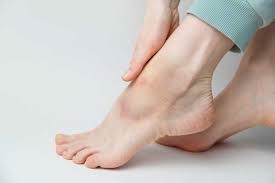
According to statistics from the World Health Organization, more than one billion people worldwide are obese- 650 million adults, 340 million adolescents and 39 million children. This number is still increasing. WHO estimates that by 2025, approximately 167 million people – adults and children – will become less healthy because they are overweight or obese.
Obesity is one of the biggest public health challenges facing the world today, affecting 800 million people with millions more at risk. It is a life-altering disease that increases the likelihood of comorbidities and doubles the risk of Covid-19 hospitalisation, yet people living with obesity lack support and face stigma at work, home and in the health system. To make change a reality, action is needed at the local, national, and global levels.
On the occasion of World Obesity Day 2022 placed under the theme “Everybody Needs to Act,” WHO is urging countries to do more to reverse this predictable and preventable health crisis.
This organisation reports that obesity is a disease impacting most body systems. It affects the heart, liver, kidneys, joints, and reproductive system. It leads to a range of noncommunicable diseases (NCDs), such as type 2 diabetes, cardiovascular disease, hypertension and stroke, various forms of cancer, as well as mental health issues. People with obesity are also three times more likely to be hospitalized for COVID-19.
The key to preventing obesity is to act early, ideally even before a baby is conceived. Good nutrition in pregnancy, followed by exclusive breastfeeding until the age of 6 months and continued breastfeeding until 2 years and beyond, is best for all infants and young children.
At the same time, countries need to work together to create a better food environment so that everyone can access and afford a healthy diet. Effective steps include restricting the marketing to children of food and drinks high in fats, sugar and salt, taxing sugary drinks, and providing better access to affordable, healthy food. Cities and towns need to make space for safe walking, cycling, and recreation, and schools need to help households teach children healthy habits from early on.
WHO is responding to the global obesity crisis on many fronts. This includes monitoring global trends and prevalence, the development of a broad range of guidance addressing the prevention and treatment of overweight and obesity, and providing implementation support and guidance for countries.
Following a request from Member States, the WHO secretariat is developing an acceleration action plan to stop obesity, tackle the epidemic in high burden countries and catalyse global action. The plan will be discussed at the 76 World Health Assembly to be held in May 2022.


















